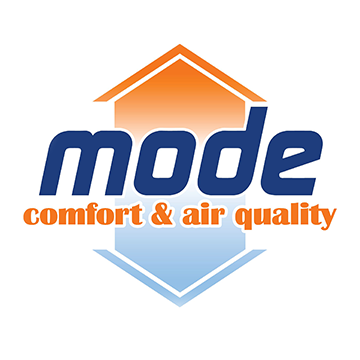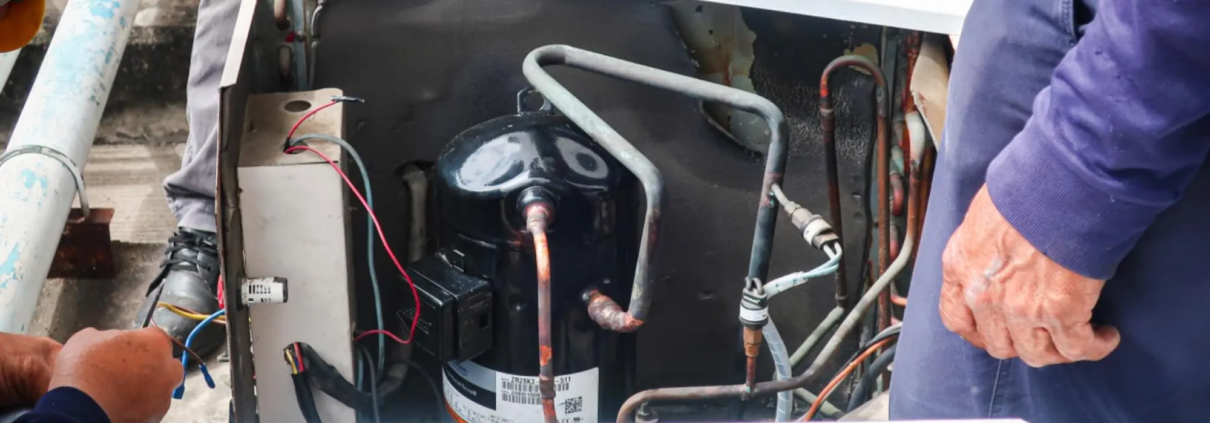Capacitor Failure: Why Does It Happen in an AC or Heat Pump System?
Have you ever wondered what could bring your air conditioner to a sudden halt in the midst of summer? One likely culprit is a capacitor failure, a common but often overlooked cause of AC and heat pump woes. This seemingly small component really impacts the overall functionality of your cooling system, as it stores the electrical energy that starts your unit’s motors. In this post, we’ll dive into the nitty-gritty of air conditioner and heat pump capacitor failure causes, helping you understand the warning signs and how to prevent this from putting a damper on your comfort.
What Is an AC Capacitor?
An AC capacitor, also known as a run capacitor, is a small but essential component designed to store and release electrical energy in an alternating current (A/C) electrical circuit. It’s often compared to a temporary battery. One of the primary roles of an AC capacitor is to assist in starting up the air conditioner or heat pump’s motors. These motors can be quite large and require a significant amount of energy to overcome initial inertia and begin rotating. The start capacitor releases its stored energy to create a high-torque start-up boost. Normally, this component operates for just a few seconds each time the motor starts.
In addition to helping the motor start, capacitors are crucial for the continuous running of the AC or heat pump unit. They are responsible for maintaining a consistent and steady flow of electricity to the motor, which helps the motor run more efficiently, reduces energy consumption, and can prolong the overall lifespan of the AC or heat pump unit.
There are some signs of AC capacitor failure to keep an eye out for. If your AC or heat pump unit is not turning on, or taking longer to start, or you hear a humming noise, there could be issues with your system. If you notice the AC or heat pump unit shuts off while it should be running or has trouble maintaining temperature, or your energy bills are higher than usual, the AC Capacitor could be your issue.
Since the AC Capacitor is such an important part of the structure of the unit, it is recommended that you schedule regular maintenance with an HVAC company. Mode Comfort services HVAC needs in the greater Richmond area and can assist with Air Conditioning Installation and Repair . Having our experts check out your system regularly can ensure that you avoid any costly issues associated with a failing capacitor.
What Causes a Bad Capacitor?
You may be asking yourself: Why do AC capacitors fail? It is essential to familiarize yourself with signs of a failing capacitor and take quick action before the issue escalates into a costly repair—or worse, a complete system breakdown where your home AC or heat pump is not working. Remember, preventive measures and early detection can save you time and money in the long run. Let’s look into some of the leading causes of capacitor issues.
1. Overheating
When an air conditioner or heat pump’s capacitor starts to overheat, it can be due to a variety of reasons, including extreme temperature conditions, overuse during hot weather, or lack of proper ventilation around the unit. Proper insulation of the electrical components, including the capacitor, can also avoid overheating. Ensuring your AC or heat pump system is correctly sized for your space can prevent undue strain on the capacitor.
2. Power Surge or Overload
These unexpected spikes in electrical current can cause severe damage on the delicate electronics within your AC or heat pump unit, including the capacitor. Electrical surges might stem from a variety of sources, such as power outages, lightning strikes, or even the irregularities from your power supply company. A capacitor acts as a buffer to protect the motor, but a strong enough surge can overwhelm it, leading to capacitor burnout. To mitigate this risk, it’s recommended you install surge protectors for your HVAC system. These protectors can help shield your air conditioner or heat pump from the brunt of electrical spikes, thereby extending the life of your capacitors and ensuring the continued effectiveness of your cooling system.
3. Worn Out or Damaged Parts in an AC Capacitor:
There are a few parts to keep an eye on to ensure they are working properly. Make sure the metal terminals of an AC capacitor aren’t rusting due to environmental moisture, leading to poor electrical conductivity and the need for part replacement. Some capacitors are filled with oil, and a leak can signal the breaking down of the capacitor’s seals, resulting in diminished performance or failure. When tested with a multimeter, a capacitor showing a significantly lower capacitance than its rated is likely worn out and needs replacing. A swollen end on a capacitor is a visual cue that internal AC capacitor failure has occurred, typically requiring the part to be changed out. Having regular maintenance scheduled with an HVAC company like Mode Comfort can allow you to avoid any AC or heat pump parts getting to the point of no return.
How Do You Determine Capacitor Failure?
By recognizing the common signs of capacitor issues, such as a humming noise from the AC or heat pump unit, the air conditioner struggling to start, a swollen capacitor case, or a completely non-functional cooling system, you can address potential problems before they lead to more significant damage. Regular maintenance checks that include inspecting for dust and debris, examining the electrical connections, and ensuring the correct voltage is supplied can help mitigate risks. Notably, capacitor failures are often due to overheating, so making sure the condenser coils are clean and the unit is not exposed to overbearing temperatures can make a difference.
Avoid A Failing Capacitor With Regular Maintenance
Understanding the common AC capacitor failure causes is essential for homeowners. By recognizing issues such as electrical surges, overheating, aging, and poor maintenance, homeowners can take preventative measures to protect their air conditioning or heat pump systems. A well-maintained air conditioner or heat pump supported by experts can save time, money, and avoid the discomfort of unexpected breakdowns. Mode Comfort is an HVAC Repair Company in the Richmond Metro Area that can help you avoid costly issues with your AC Capacitor and ensure you stay cool in the summer months. Call Mode Comfort at 804-481-6633 to schedule your units’ preventative maintenance appointment today!





Leave a Reply
Want to join the discussion?Feel free to contribute!